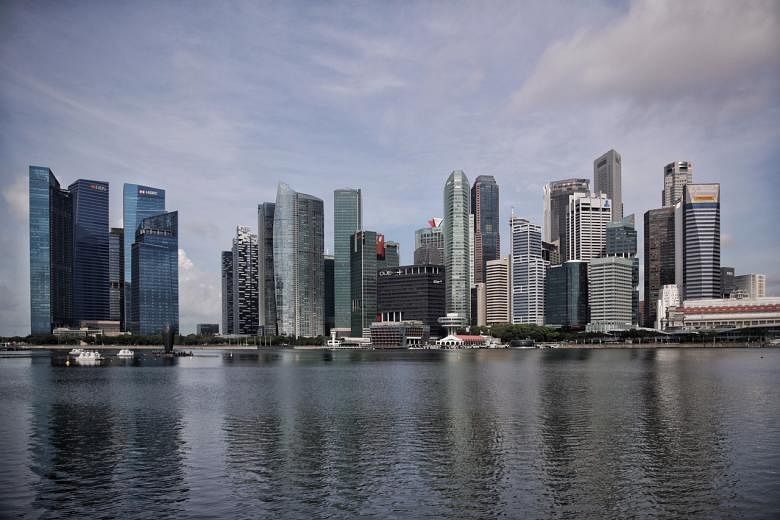SINGAPORE - As the United States seeks to decouple technologically from China and Beijing retaliates, there are opportunities to be had in this tussle for Singapore, a Chinese entrepreneur has said.
This is because there is a need for a buffer zone between the two sides, said Dr Xiao Feng, chairman and CEO of Wanxiang Blockchain Inc, at the FutureChina Global Forum on Monday (July 12) organised by Business China.
Singapore can be that "technological buffer zone to connect the two countries" as a digital free port, he said.
For example, he said, as the Chinese authorities are monitoring Chinese companies seeking to list in the US from the perspective of network and national security, Singapore as an international financial centre can be that bridge where smaller Chinese tech companies can list.
The Chinese government in recent days has stepped up oversight of listings in the US by tech companies.
Last week, the State Council said it would tighten rules for companies seeking to be listed overseas and strengthen restrictions on cross-border data flows and security.
This announcement came after the government ordered the removal of Chinese ride-hailing app Didi Chuxing from mobile app stores in China, just days after it was listed on the New York Stock Exchange. The firm allegedly collected users' personal information illegally.
At least two other tech companies listed in the US have also come under scrutiny for cybersecurity issues.
Another role that Singapore can play as a technology free port is as a centre for talent training and exchange, said Dr Xiao.
Noting that China's universities are not doing enough to train talent, he suggested that Singapore could be a place where universities from different countries can set up research centres.
While Dr Xiao did not make reference to this, the Chinese government last week slammed the US for denying visas to more than 500 post-graduate students from China who had been offered places in American universities.
Other speakers at the FutureChina Global Forum pointed out that while China in the past had learnt from the West, this learning has become a two-way street, with others now learning from China.
One example is Gojek, Indonesia's multi-service platform company.
Speaking at one of the sessions, Gojek Singapore general manager Lien Choong Luen noted that Gojek was learning from China's examples, such as food delivery and e-commerce platforms Ele.me and Meituan, and localising them.


